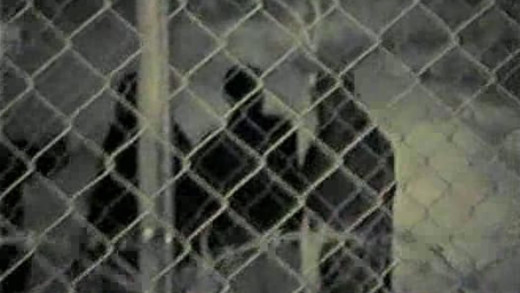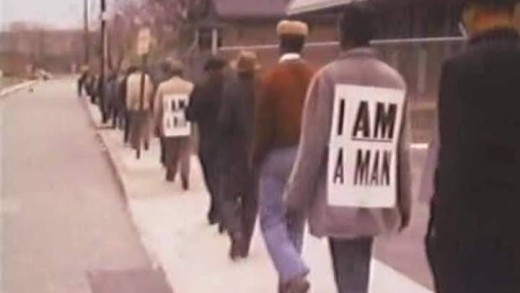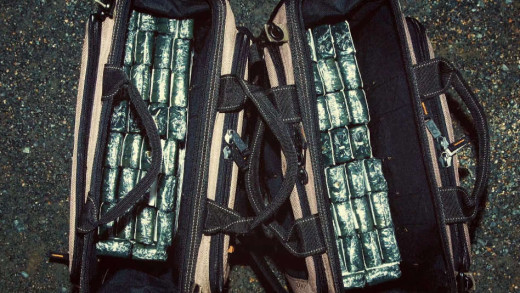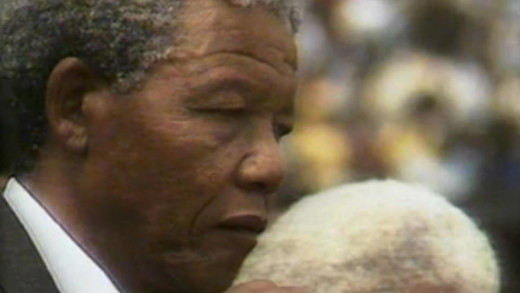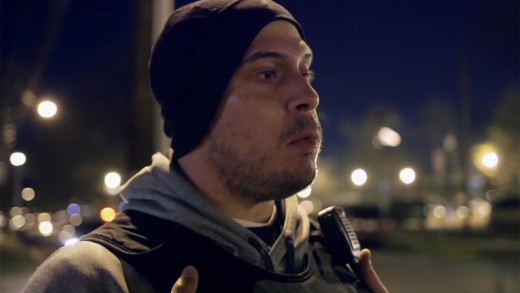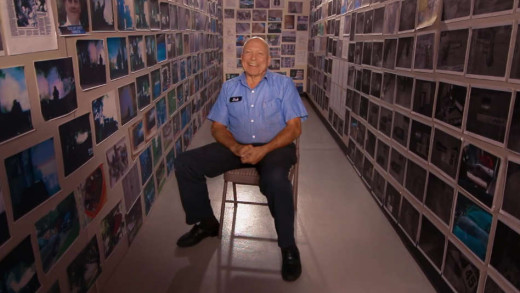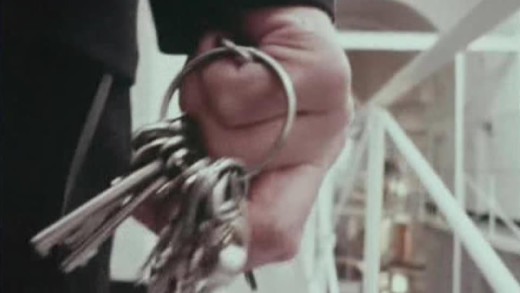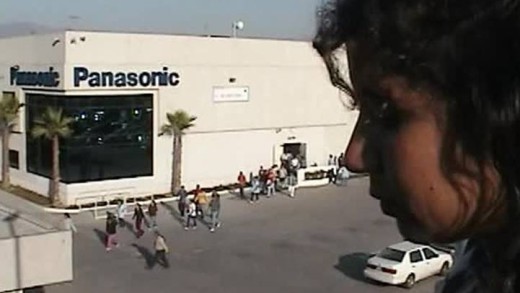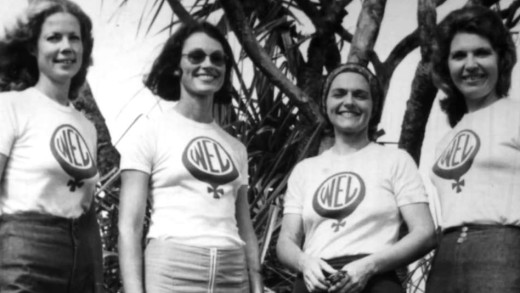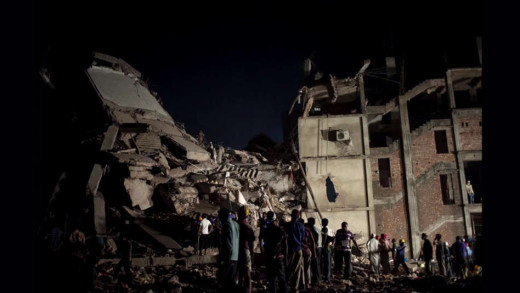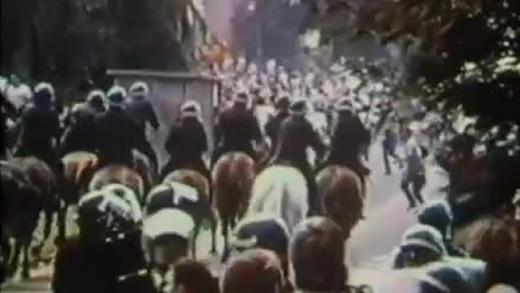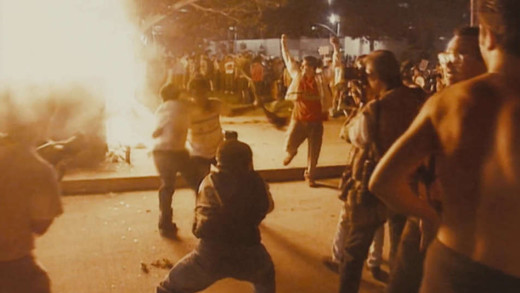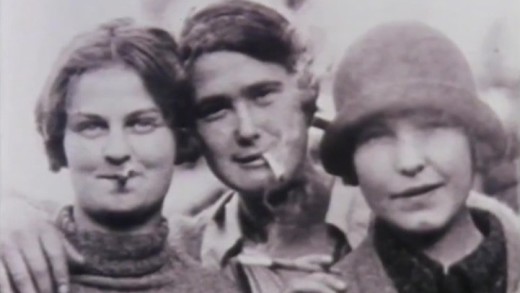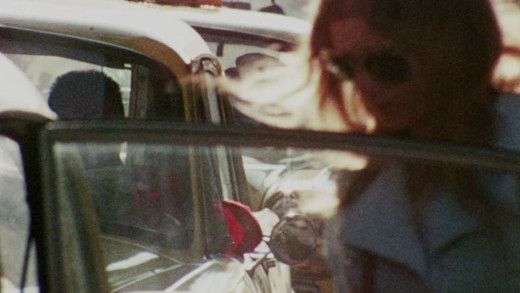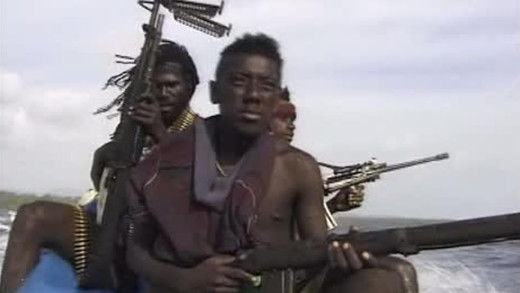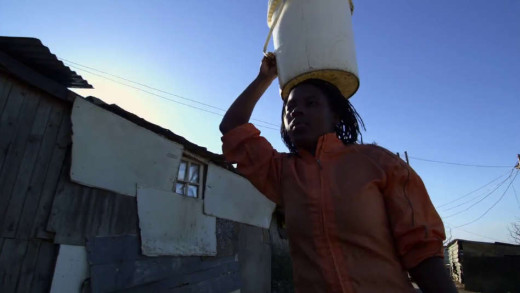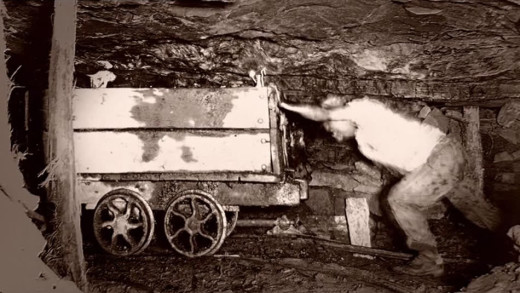To its backers, Woomera detention centre played a so-called "humane yet crucial role in housing the growing numbers of 'boat people' landing on Australia's shores." To its critics, this prison, as a heavily guarded cluster of buildings ringed by red desert and razor wire, represented the "dead-heart of asylum-seeker policy" and Australia's lacklustre regard for human rights. Woomera opened for business less than four years ago. Built for 400 people, it soon housed more than 1,400. It became notorious for riots, protests and breakouts by desperate detainees. There were reports that mental illness and self-harm were rife and as the reports mounted, TV cameras captured the protests at the perimeter fence. Certain press warned of detainees' declining health and morale. Yet when Woomera was quietly placed in mothballs last month, its full story remained to be told...
Spring of 1968 in Memphis Tennessee marked the peak of the Civil Rights movement in the United States. At the River I Stand sets out to reconstruct the eventful months leading up to this period by looking at what started as a strike by sanitation workers which quickly soared into a national conflagration. The film disentangles the complex historical forces that came together for the struggle as well the inevitability of tragedy at the death of many, including Martin Luther King. At the River I Stand brings into sharp relief issues that have only become more urgent in the intervening years: the connection between economic and civil rights; debates over strategies for change, and the questions of effectiveness of pacifist tactics for social change; the demand for full inclusion of African Americans in life; as well as the pressing fight for dignity for all working people...
White Like Me, based on the work of acclaimed anti-racist educator and author Tim Wise, explores race and racism in the United States through the lens of whiteness and white privilege. In a stunning reassessment of the American ideal of meritocracy and claims that we've entered a post-racial society, Wise offers a fascinating look back at the race-based white entitlement programs that built the American middle class, and argues that our failure as a society to come to terms with this legacy of white privilege continues to perpetuate racial inequality and race-driven political resentments today.
The Newburgh Sting exposes the FBI's nationwide practice of targeting Muslim communities by luring unsuspecting impoverished citizens into traps to commit acts of terrorism, and then selling their arrests to the public as major law enforcement coups. As told by the defendants, lawyers, local Imams and a former career FBI agent, The Newburgh Sting depicts how four men living at the margins of society were entrapped by an FBI informant and lured into a wild plot involving bombing a wealthy Riverdale synagogue, and shooting stinger missiles to take down a military supply plane. Their arrest was misleadingly portrayed to the public as a counter-terror victory.
Apartheid based on race is 'outlawed now', but the system always went far deeper than that. The cruelty and injustice were underwritten by an economic apartheid, which regarded people as no more than cheap expendable labour. It was backed by great business corporations in South Africa, Britain, the rest of Europe, and the United States and it was this apartheid based on money and profit that allowed a small minority to control most of the land, most of the industrial wealth, and most of the economic power. Today, the same system is called--without a trace of irony--the free market.
Over the past several years, a seemingly relentless string of killings by police of unarmed black men—Michael Brown in Ferguson, Freddie Gray in Baltimore, Eric Garner in New York—has reignited issues around race, policing and civil rights in the United States that have been languishing unresolved for decades. Recently the issues are critical enough that the Department of Justice has stepped in to mandate reform of several police forces renowned for brutality and institutional abuses of power. In Policing the Police, journalist Jelani Cobb gets up close and personal with police departments and officers alike, to show from the inside the difficulties these institutions now face of fixing a broken relationship with the community after decades of mistrust. Is it even possible with the current police culture? Policing the Police is a powerful case study of these questions, and a light on just how much has to change.
Peace Officer explores both the militarisation and increasingly violent culture of police forces, as told through the career of William Lawrence, a former sheriff of Davis County in Utah United States, who established and trained the state's first SWAT team. As a gifted investigator, Lawrence's savvy skills help break the Ted Bundy case. He also sees SWAT enter the public consciousness and transform the culture of policing throughout the 1970s, along with the convergence of the War on Drugs on policing attitudes and police violence. He eventually leaves public office, concerned, when soon after, his son-in-law is killed in an emergency call gone awry by the very same SWAT unit he created 30 years ago. An internal investigation of course finds no police wrongdoing, so Lawrence turns to his own renowned investigative skills. He sets out to not only uncover the truth of his son-in-law's homicide, but to tackle the culture and attitudes of modern-day policing on a national level.
Guilty Until Proven Innocent reports on the issue of innocent people confined to prisons on remand in the UK, circa 1974. People are imprisoned without trial and are later released with either a small fine, a set of mandatory conditions, or leave completely innocent. It's a strange set of circumstances in a country with such pretensions of a bill of rights and espoused 'legal protections.' Is bail a right or a privilege?
Presented by author and activist Naomi Wolf, The Beauty Myth explores the phenomenon of how the social power and prominence of women has increased in the past few decades, alongside a paradoxical increase in the pressure they feel to adhere to unrealistic social standards of physical beauty, appearance and presentation. It seems the more legal and material hindrances women have broken through, the more strictly and heavily and cruelly images of female beauty have come to weigh upon us. Women have breached the power structure, but meanwhile eating disorders have risen exponentially and cosmetic surgery has become a fastest-growing specialty. Pornography has become the main media category--ahead of legitimate films and records combined--and thirty-three thousand American women told researchers that they would rather lose ten to fifteen pounds than achieve any other goal. How did this come to be? The Beauty Myth shows how the edacious commercial culture drives this pressure and leads to a pervasive preoccupation with appearance in both sexes, compromising the ability of women to be effective in and accepted by society. The film is a call to question the culture and redefine the notions of success, beauty and indeed what it means to be a sane human being in this toxic culture.
Let It Fall: Los Angeles 1982–1992 is a deep examination of a tumultuous decade in the city of Los Angeles, United States, leading up to the events of April 29, 1992, when the verdict was announced in the Rodney King case. The film traverses the conflicts between law enforcement and the black community to look at tensions across the city as a whole, and traces the roots of civil unrest to a decade before uprisings, as told through interviews with eyewitnesses and people directly involved in the events from diverse neighbourhoods across the city, including black, white, Hispanic, Korean, and Japanese Americans.
To many in both business and government, the triumph of the self is the ultimate expression of democracy, where power is truly moved into the hands of the people. Certainly the people may feel they are in charge, but are they really? The Century of the Self tells the untold and controversial story of the growth of the mass-consumer society. How is the all-consuming self created, by whom, and in whose interest?
In Mexico, 'maquiladoras' is a word used to describe the sort of factories that have become commonplace with globalisation—mass assembly and manufacturing plants primarily staffed by women for low wage and long hours in unsafe and toxic conditions. Tijuana has attracted so many such factories that it has gained the nickname Maquilapolis. Delving into the landscape of this, this film asks the question: What is the human price of globalisation? Maquilapolis brings American and Mexican-American filmmakers together with Tijuana factory workers and community organisers to answer that question and tell the story of globalisation through the eyes and voices of the workers themselves. The result is a film to inform and inspire, as each day the workers confront labor violations, environmental devastation and urban chaos...
This film profiles Howard Zinn, historian, political scientist and author, who tells us the personal stories about more than thirty years of fighting for social change, from teaching through to recent protests against war. A former bombardier in World War II, Zinn emerged in the civil rights movement in the United States as a powerful voice for justice. Although a fierce critic, Zinn gives the viewer inspiration in that by learning from history and engaging politically, we can each do our part to make a difference in the world.
Brazen Hussies documents how a daring and diverse group of women joined forces in Australia to create profound social change, contributing to one of the greatest social movements of the 20th Century. The film weaves archival footage, personal photographs, memorabilia, and lively accounts from the women who reignited the feminist movement in Australia, at times at great personal cost, to show how women began organising around issues such as equal pay, reproductive rights, affordable childcare, and the prevention of family violence and rape. As the story unfolds, these issues go from being dismissed as the outrageous demands of a few "brazen hussies" to becoming crucial elements of mainstream politics. The film documents how ASIO spied on the movement, the pushback from male-dominated media, and the impact of internal struggles, such as the inclusion of lesbians and the relevance of the movement to Aboriginal women. 50 years on, the work of this movement paved the way for where feminism finds itself today. And while the landscape, breadth and diversity of feminism is vastly different, without this movement and the changes it achieved, we wouldn’t be where we are now. Recording and celebrating this important history, offers a valuable opportunity to reassess and discuss where we are now as a society, what gains have been made, what is at risk, and where we are headed.
In the name of "protecting children," the Australian Government's so-called "emergency intervention" into Aboriginal communities in the remote Northern Territory, has taken away all existing Aboriginal land rights, suspended racial discrimination laws and placed over 70 communities under compulsory government control with subsequent measures of course having very little to do with "protecting children." Instead, the outcome has been the disempowerment of traditional land owners, the further theft of Aboriginal land, the theft of resources, with the intent being to forcibly assimilate Aboriginal culture.
By the early 1990s, solid research and overwhelming evidence had prompted a growing awareness of the epidemic nature of date rape, especially on college campuses. But, starting in 1993, the media used the anecdotal comments of one young woman, Katie Roiphe, to undermine efforts to stop this continuing crime against women. How did this happen?
Clothes to Die For documents the worst industrial disaster of the 21st century--the collapse of the Rana Plaza building in Bangladesh, in which more than 1,100 people died and 2,400 were injured. The eight-storey building housed factories that were making clothes for many western companies--Prada, Gucci, Primark, Walmart, H&M, Gap, and others. Through a series of compelling interviews and footage from the scene, this film gives a voice to those directly affected, and highlights the greed and high-level corruption that led to the tragedy. It also provides an insight into how the incredible growth in the garment industry has transformed Bangladesh, in particular the lives of women. Clothes to Die For raises fundamental questions about the global fashion industry and the responsibilities of all those involved.
Orgreave in the North of England was the focal point for a mass protest by miners in June 1984. At this time, miners were angry over proposed pit closures and reacted by striking and pressuring other pits to close. The culmination of these protests was a mass gathering of miners from all over the country at Orgreave. On the morning of 18th June miners were escorted into Orgreave. At this point, police tactics already resembled a military campaign. After a push by the miners, the police acted with force, charging the pickets on horses. The protest soon turned violent with the police deploying dogs, batons and guns in an attempt to suppress the protest. The Battle for Orgreave interviews defendants directly about their experiences of Orgreave, and how those experiences changed their life...
The Bro Code unpacks and takes aim at the forces of masculinity that condition boys and men to fundamentally dehumanise and disrespect women. The film breaks down a range of contemporary media forms that are saturated with sexism—movies and music videos that glamorise misogyny, pornography that trades in the brutalisation and commodification of women, comedy routines that make light of sexual assault, and a slate of men's magazines and TV shows that propagate myths of what it means to be a man in this culture: that it's not only normal, but "cool" for boys and men to control and humiliate women. There's nothing natural or inevitable about this mentality. And it's extremely harmful in the real world. By setting the myths against reality, The Bro Code challenges young people to step up and fight back against this culture, to reject the fundamental idea that being a 'real man' means disrespecting women.
Consisting entirely of archival footage, LA '92 chronicles the 1992 Los Angeles riots, 25 years after they have passed. It includes film and video from the 1965 Watts Riots, the 1973 election of Tom Bradley, the 1978 promotion of Daryl Gates to Chief of LA Police, the shooting of Latasha Harlins, the Rodney King videotape, and the subsequent riots and violence that erupted after the acquittal of the officers involved in King's beating.
The shocking story of a well respected Indigenous community leader in outback Western Australia who was locked in a metal cell in the back of a prison van and driven through the desert in the searing heat. Four hours later he was dead. Reporter Liz Jackson reveals the tragic train of events that led to this death, despite repeated warnings that Western Australia's prisoner transport system was unsafe and inhumane...
Made over five years, with contributions from hundreds of women and over 200 Australian films, For Love or Money is a pictorial account of women's history in Australia over the past decades. The film chronicles the cycles of women's gains and losses as they are moved in and out of the workforce according to demands of the age, revealing how women's unpaid and voluntary work over the years has kept and continues to keep an entire system running smoothly, both in peacetime and in war. In this culture, women do the work that is never paid or still not even recognised as real work. This film shows how this system determines the kinds of jobs women do in the paid workforce--the low-paid, low-status jobs--and how women have fought and organised for equality and wage justice for over a century. For Love or Money remains relevant today as women continue the unfinished campaigns for equal pay, maternity leave and childcare, and still carry the major responsibility for caring and nurturing in the culture of individualism.
Filmed over 3 years, Complicit is an undercover investigation into the lives and conditions of workers that assemble iPhones, tablets, and other electronics in factories such as Foxconn in Shenzhen and Guangzhou, China. The film reveals the global economy's factory floors, showing the conditions under which China's youth have migrated by the millions in search of the espoused "better life" working for big corporations. But the reality is working long hours with toxic chemicals that cause many cumulative detrimental health conditions, including cancers. As such, a focal point of the story is Yi Yeting, who takes his fight against the global electronic industry from his hospital bed to the international stage. While battling his own work-induced leukemia, Yi Yeting teaches himself labour law in order to prepare a legal challenge against his former employers. As the struggle to defend the lives of millions of Chinese people from becoming terminally ill from work necessitates confrontation with some of the world’s largest corporations, including Apple and Samsung, Complicit turns to become a powerful portrait of courage and resistance against screens and rapacious corporate power in a toxic culture.
Roe v. Wade, the 1973 Supreme Court decision that protected a women's right to an abortion, had not yet been handed down, meaning the procedure was illegal throughout most of the United States, forcing women with unwanted pregnancies to turn to exploitative abortion providers (like the Mafia) or resort to dangerous methods to self-induce an abortion. Using code names, blindfolds, and safe houses, a group of brave women built an underground service for women seeking safe, affordable, illegal abortions calling themselves JANE. Ultimately, the Jane Collective provided close to 11,000 abortions by the time Roe v. Wade came into effect. Through interviews with the former Janes, this film portraits the history of JANE, and reminds the viewer of their commitment to ensuring the safety and well-being of other women was a measured, intelligent response to the inadequacies of a system that refused to fend for its own.
The Coconut Revolution documents the struggle of the indigenous peoples in the Bougainville Island. The movement is described as the world's first successful eco-revolution, in that the successful uprising of the indigenous peoples of Bougainville Island against the Papua New Guinea army stopped the mining plans of the RTZ company to exploit their land for resources...
Based on interviews conducted with hundreds of young women, Flirting With Danger examines how the wider culture's frequently contradictory messages about pleasure, danger, agency, and victimisation enter into women's most intimate relationships. The result is a candid and nuanced look at how women are forced to grapple with deeply ambivalent cultural attitudes about sexuality and relationships. These interviews are essential viewing for tackling the problematic issues surrounding consent, coercion and sexual violence throughout the culture.
When the South African government promises to "eradicate the slums" and begins to evict shack dwellers far outside the city, three friends who live in Durban's vast shantytowns refuse to be moved. Dear Mandela follows their journey from the shacks to the highest court in the land as they invoke Nelson Mandela's example and become leaders in a growing social movement. The film offers a valuable perspective on the role that young people can play in political change, and is a modern portrait of South Africa. Dear Mandela is the centerpiece of a global community engagement project that educates slum residents about their housing rights and inspires young people to become leaders.
In 1929, in the face of collapsing demand for coal and a deepening economic crisis, mine owners in the Hunter Valley of New South Wales, Australia; announced, with the support of government, that they would cut miners' wages and strip them of their workers rights. When the workers refused to agree to these terms the mine owners locked the gates. 10,000 miners, pit boys and their families now found themselves without a job. What began as an dispute about industrial labour ended up overpowering a government, crippling an industry and besieging a community. This event challenged the rights of every Australian worker, and redefined the political and industrial landscape of a country that witnessed an event forever remembered as 'The Great Australian Lockout.'
